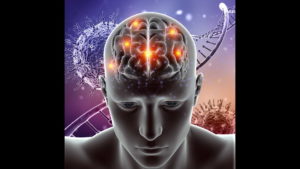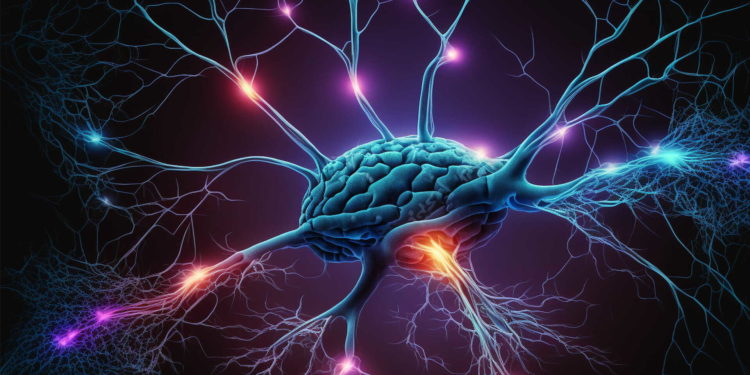Let us understand the concept of neuroception that works hard in the busy environment of our minds. A silent defender or natural safety radar may go unnoticed, yet it is always in operation, always monitoring your environment.
Your mind has a lot going on that you might not know. As we talk, speak, perceive, feel, or have anything, our mind reacts.
In simple words, consider neuroception as a personal defense mechanism of your brain, enabling it to form sudden decisions about the surroundings. It brings in a peaceful, open sensation when it feels safe, enabling you to interact with people and confidently tackle hurdles in life. On the other hand, it activates when it senses danger, setting your body prepared for self-defense, similar to the reflexes of a superhero.
The amazing thing about neuroception is how silently and nearly undetectable it functions. It might even work wonders without your awareness. It is the method of your brain for making sure you are okay without making you think about it.
Isn’t that interesting?
Truly, our mind is something super magical!
Therefore, for now, let’s know about neuroception, and see how it affects the interactions and experiences you have every day.
Understanding The Concept Of Neuroception: How Our Brain Automatically Assesses Danger and Safety

The human brain continuously processes a large quantity of information in daily life, each moment and most of which we are unaware of. Neuroception is the autonomic brain mechanism that considers risk in our surroundings and adjusts our physiological reactions accordingly. It is one of the fascinating parts of the process done by our brains. This process makes impulsive decisions about whether a person or circumstance is safe, hazardous, or even life-threatening when it functions below the level of conscious awareness. If I take you to the easiest route to understanding neuroception:
Neuroception functions similarly to an automated safety radar. It constantly monitors your safety and well-being.
You feel at ease, friendly, and prepared to interact with people when it detects safety.
Your body prepares to defend you if it senses danger, as it does when you are scared or anxious.
You might even freeze in extreme cases.
The best part is that you are completely unaware of it all happening! Your brain quietly keeps an eye on you like a silent bodyguard.
It is amazing how silently and nearly undetectable it functions. It works wonders without your awareness. It is your brain’s method of making sure you are okay without making you think about it.
How Neuroception Works?

The fundamental view of neuroception is that our nervous system constantly scans our surroundings for signs of danger or safety. This process occurs quickly and spontaneously, frequently without our awareness. Think of it as a constant, internal alarm system that guides us through the unclear environment we live in.
The Three primary responses are,
Safety: Our bodies go into a calming condition when this process detects danger, which allows us to interact with others and take care of different duties.
Danger: When we perceive danger, our bodies go into survival mode and initiate the fight-or-flight response.
Life and Death: The most severe reaction, resulting in immobilization and, in certain situations, a freeze response when neuroception interprets a situation as potentially fatal.
Our social relationships and emotional health are just two areas of our lives that are impacted by the process of neuroception. Better parenting, stronger relationships, and more successful mental health therapies can result from an understanding of how our brains subtly assess risk and safety.
Many of the factors influencing our behavior are outside of our conscious awareness.
Handling Neuroception in Everyday Situations
Knowing this important process is only the beginning. Understanding how to use this knowledge in your day-to-day activities is vital if you want to get the most out of it.
Identifying Neuroceptive Indications
Keep a close eye on how your body reacts to different circumstances. Acquire the ability to identify indicators such as elevated heart rate, tense muscles, or uneasiness. These could be signs that your neuroception is detecting a threat or danger.
Consciously inhaling
Take a few deep breaths and pause when your neuroception indicates danger or tension. Your parasympathetic nervous system can be activated by slow, deep breathing, which will help you feel more at ease.
Establishing Child-Safe Environments
When it comes to giving kids a safe environment, parents and other caregivers can be quite important. Make sure the environment your child is in is stable, predictable, and secure. Maintaining consistency lowers the possibility of false alarms from neuroception.
An understanding listening
Empathetic listening is a useful skill when someone you care about seems to be experiencing stress or worry brought on by neuroception. Give them a safe area to talk about their emotions and worries without passing judgment. They certainly feel safer and more supported as a result of this.
Focused Meditation
Practice mindfulness meditation to become more conscious of your own neuroception. You can learn to better control your body’s reactions by being aware of them and remaining in the present moment.
Developing a Feeling of Safety
Promote a feeling of security in your interactions and relationships. Show your trust by keeping eye contact, smiling, and displaying open body language. Positive neuroception responses and social interaction can be triggered by these stimuli.
Getting Expert Assistance
Seeking help from a mental health professional is something you should think about if you or someone you know is experiencing these problems. Specialists in therapies and focused solutions for these problems include therapists trained in methods such as Polyvagal Theory.
Coping Mechanisms For Impaired Neuroception
Although managing the effects of poor neuroception can be difficult, there are numerous techniques that people can use to help:
Techniques for Mindfulness
Deep breathing exercises and other mindfulness techniques can make people more conscious of their neuroceptive signals. People who practice mindfulness are able to better regulate their body’s reactions, which lowers tension and anxiety.
Options for Therapy
Therapy is an important tool for those with impaired neuroception. Therapists can help people recognize and reframe their neuroception responses, which will ultimately make them feel safer in a variety of settings. This is especially true for those who have received training in ways such as Polyvagal Theory.
Self-Care Activities
To control their neuroception, people should experiment with self-help techniques to actively identify and change their instinctive reactions.
The Ending Notes
From an individual perspective, understanding neuroception significantly influences our worldview and social interactions. Understanding this concept is helpful since it shows that many of the mechanisms that control our behavior and emotional reactions are ones that we frequently aren’t aware of.
Exploring neuroception would make you realize how central understanding and kindness are to our life. It increases awareness of the signals one gives and receives from other people and how they can either promote collaboration and trust or cause miscommunication and conflict.
The importance of emotional intelligence in both our personal and professional lives has been reaffirmed by our growing understanding of neuroception.
Things would be different if we understood the fundamentals of our mental health. The process would made us more aware of our mind, body, and overall health.
Neuroception is an amazing concept as it influences how we interact with people, handle conflict, and even perform in high-stress situations. It pervades all aspects of our daily life.
Furthermore, the incorporation of neuroception into diverse psychological and neurological frameworks enhances our understanding of human conduct and affect. It is a tool that enables us to create relationships that are safer, more harmonious, and ultimately, more compassionate and empathic.
So, what did you understand about Neuroception, is it new to you?













